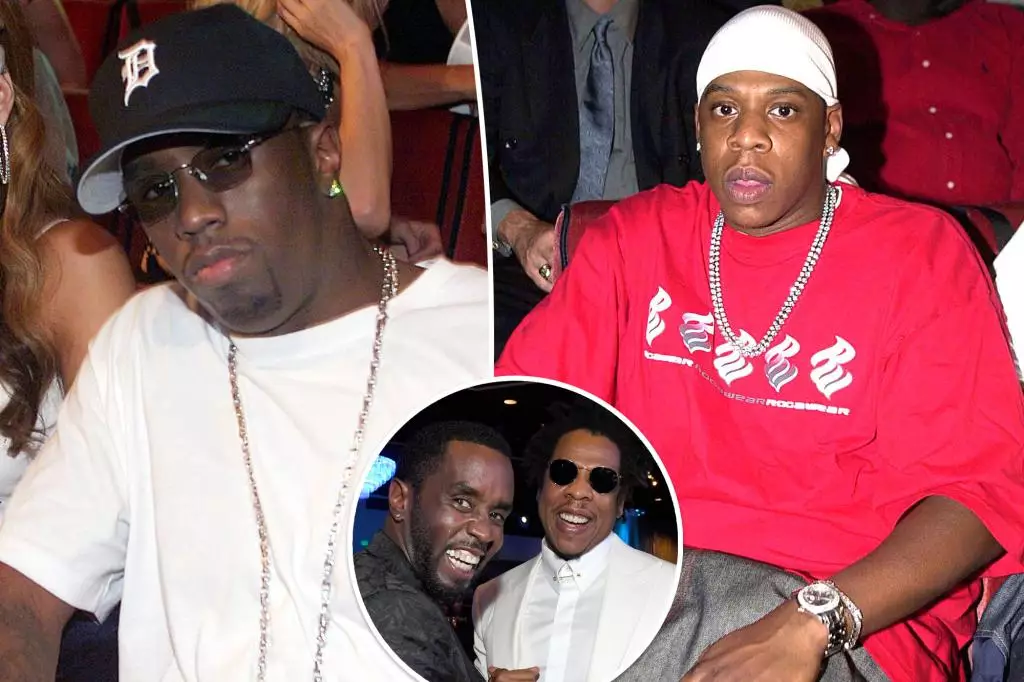The world of entertainment is no stranger to controversy, and a recent claim has thrust two of the music industry’s most prominent figures, Jay-Z and Sean “Diddy” Combs, into a maelstrom of allegations that date back to a 2000 MTV Video Music Awards afterparty. The civil lawsuit, re-filed by attorney Tony Buzbee, alleges that both men raped a 13-year-old girl, referred to in court documents as Jane Doe. As new details emerge, the implications of these disturbing allegations raise questions about celebrity accountability, public perception, and the legal system’s role in addressing such serious claims.
The re-filing of the lawsuit rekindles allegations that initially surfaced in October, wherein only Diddy was named as a defendant. According to the accusation, the events unfolded during a house party in New York City. The plaintiff asserts that she was provided a drink that caused her to feel disoriented before being led to a bedroom. The accusations are serious and disturbing: Jane Doe claims Jay-Z undressed her and assaulted her while Diddy watched, after which Diddy allegedly assaulted her as well. These grievous claims cast a long shadow over both men’s legacies and spark outrage in discussions around sexual consent and exploitation.
This lawsuit is particularly significant not only for the content of the allegations themselves but also because it reignites conversations about historical cases of abuse and the systemic issues surrounding such allegations. For a long time, survivors have struggled to voice their experiences, often feeling marginalized and dismissed. The focus on high-profile individuals adds another layer, as the public grapples with the notion of guilty until proven innocent within the framework of media scrutiny and public sentiment.
Both Jay-Z and Diddy have vigorously denied the allegations. Jay-Z’s reaction, articulated through a robust statement, vehemently refutes the claims, branding them “heinous” and the actions of Buzbee as a “blackmail attempt.” His response is not just a legal defense; it is a passionate plea for justice, emphasizing the gravity of the charges. He even challengingly urges for criminal proceedings instead of civil complaints, expressing that severe crimes against minors warrant the full force of the law. The emotional toll on his family is evident in his words, as he highlights the unfair burden children endure when exposed to such allegations and the malicious intent behind them.
Diddy’s legal team echoes a similar sentiment, framing the lawsuit as a “publicity stunt” aimed at extorting money from celebrities. They stand firm in their conviction that Diddy has never engaged in such misconduct. This reaction showcases the dual responsibility that public figures must navigate: to protect their reputations while also confronting severe allegations that can deeply impact the lives of many, including potential victims.
Broader Implications on Celebrity Culture
This case highlights a troubling aspect of celebrity culture—where high-profile individuals are frequently embroiled in court battles that both draw public interest and provoke concern about the broader societal implications. The judicial system operates under the presumption of innocence; however, once accusations surface, media portrayals and public perceptions often blur this essential principle.
This case also raises profound questions about the responsibilities of those in positions of power, particularly in industries with histories of allowing such behaviors to go unchecked. The music scene is woven with tales of exploitation and abuse, and every instance that bubbles to the surface prompts a call for reform and accountability. The voices of survivors can no longer be overshadowed by fame and fortune, and society is beginning to reckon with its past failures to protect the vulnerable from predation.
As we contemplate this unsettling narrative, it is crucial to approach these allegations with the seriousness they deserve. The legal proceedings that will follow may lead to much-needed revelations about the events that transpired in 2000. However, they also compel us to reflect on our collective role in listening to victims, addressing misinformation, and holding powerful individuals accountable. This case, regardless of its outcome, signifies an unwavering demand for transparency and justice within the entertainment industry, serving as a stark reminder that success ought not to eclipse responsibility and ethics.
The conversations that arise from such allegations are pivotal; they do not conclude with mere legal resolutions but continue to influence societal attitudes surrounding consent, abuse, and accountability. In the end, we must prioritize the voices of survivors while ensuring that justice, however it may manifest, is pursued vigorously.

Leave a Reply